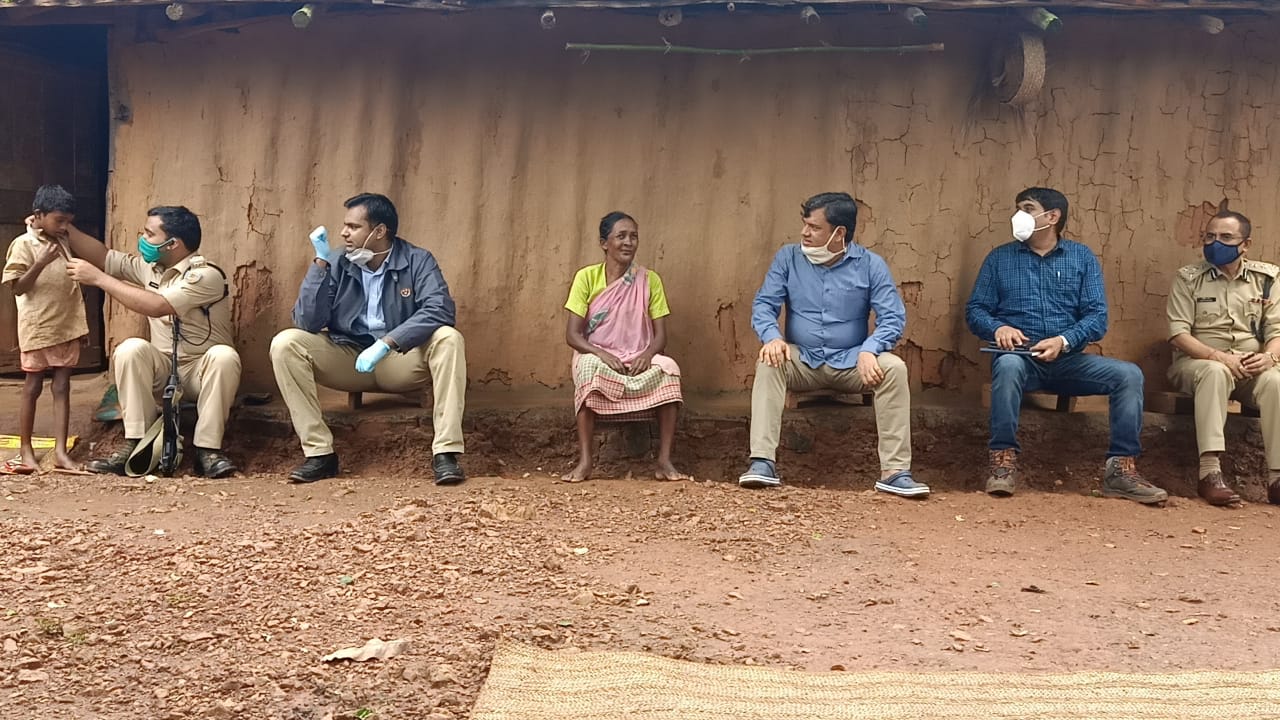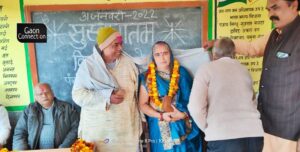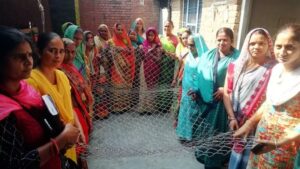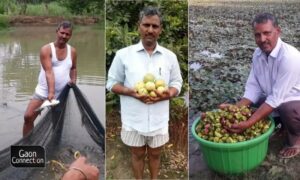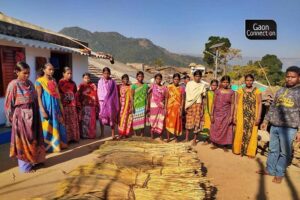Mukta Lomga, a tribal woman in her early 30s living in naxal-affected Saranda forest in West Singhbhum district of Jharkhand, chops firewood from the jungle and takes it to the market, walking down the hills for 16 kilometres, twice a week, to get a paltry Rs 50 or Rs 60. She has to run her family for an entire week with this. There are hundreds of Muktas whose monthly earnings are lower than an urban household’s DTH or mobile phone Internet pack.
The Saranda forest area has about 30 to 40 villages in the form of small Tolas, where basic amenities elude people even today. Because of low income, most tribal people subsist on a diet of rice and salt. Dal and vegetables are considered ingredients worth only a festive feast. The women, men and children suffer from acute deprivation. They have little to wear but grimy rags, and the malnourished children’s stomachs are swollen.
The tribal people had got used to living with problems unique to them. Their problems – long treks through the forest to reach any facility, malnutrition, poverty and, most importantly, no contact with the administration for many decades – seemed perennial.
However, on the morning of August 24, they were pleasantly surprised to see the entire administrative staff of Chaibasa district in Jharkhand in their villages. The reason?
The state chief minister Hemant Soren had acted upon a report published in Gaon Connection on August 21, throwing light on the plight of these villagers, especially pregnant women, living in the Saranda forest, where they lacked even basic facilities such as access to clean drinking water, nourishing food and health checkups.
On August 17, the Gaon Connection correspondent had visited Nuiagada and reported on how the local people were suffering a plethora of problems including lack of access to healthcare and government schemes.
Why has Government help not reached the villages so far? “These are un-notified villages and are categorised as Vangram (forest villages),” said Sudhir Pal, a forest rights legal expert. “The number of such villages within Chaibasa district is 24. These villages were not accorded the status of revenue villages by the British. The Revenue Department does not interfere because they come under the Forest Department. And so, the area suffers dual apathy.”
Soren ordered the district magistrate of Chaibasa to immediately provide government ration, medicines and essential items to these villagers. Deputy commisioner Arwa Rajkamal undertook to set up health camps as well as support camps within 72 hours at the four forest villages of Nuiagada, Bordabati, Honjordiri, and Rangring. He also assured that pregnant tribal women would be registered and given necessary foodgrains. It was decided to formulate a special plan for the all-round development of women in the area and apprise the Chief Minister of action taken.
.@DC_Chaibasa यह स्थिति बर्दाश्त योग्य नहीं है। कृपया मामले का अविलंब संज्ञान लेते हुए सारंडा के इन दुर्गम क्षेत्रों में खाद्यान्न समेत सभी सरकारी सुविधाएँ उपलब्ध कराते हुए सूचित करें। https://t.co/qWECyty63l
— Hemant Soren (@HemantSorenJMM) August 22, 2020
Exactly 72 hours later, the entire administration, headed by Manish Ranjan, commissioner of Singhbhum Division, was in Saranda forest to listen to the woes of the local people. A roadmap for the systematic development of the area was then prepared.
The problems of those living here are myriad. The income levels are abysmal. One of Lomga’s children died two years ago due to lack of medical care. She doesn’t even know why her baby died. According to the Sample Registration System (SRS) report, 14 out of every 100 deaths in Jharkhand are of children between 0 and 4 years of age. Jharkhand also ranks sixth in the mortality ratio for this age group.
Despite the Centre’s Surakshit Matritva Abhiyan and provisions of free prenatal check-ups, supplements, vaccination and nourishing food (pushtahar), the tribal women living in relatively inaccessible areas are deprived of all such facilities. Thirty-eight-year old Geeta Gagrai of Rangring village said that “till today, no woman in our area has seen a doctor during pregnancy, neither has any ASHA worker come to us”.
Parvati Marla, a 20-year-old pregnant tribal woman living in abject poverty, is forced to drink impure water every day. Sixteen women, including Lomga and Marla, were found to be pregnant across the villages of Nuiagada, Bordabati, Honjordiri and Rangring, an area of about 15 kilometres.
Gono Chanpia, the head of Bordabati village, said he has relatives living near Kiriburu township. “Often, pregnant women are carried by men on a cot from the tribal villages to Kiriburu. The women stay till the child is born. However, this is possible only for those who find work and earn every day. The rest deliver in the tribal villages, or if a woman goes into labour while at work, in the forest,” he explained.
After the visit on August 24, a medical camp was set up in the nearby village of Rangring, where children and pregnant women were screened. The camp also issued ration kits, with rice, dal and salt, to all, besides medicine and medical advice.
The villagers also requested for roads and schools and an anganwadi centre accessible by the four villages to educate the children. Commissioner Ranjan assured the villagers that the block development officer would constantly monitor these villages. The commissioner also assured villagers that health facilities and clean potable water would soon be made available.
Deputy commissioner Rajkamal admitted that the administration had stepped into this region after many years. Since they were not recognised as revenue villages, they were unable to derive the benefit of numerous development schemes. He said that one among four-five villages where the forest rights lease had been previously provided would be chosen, and a community building constructed. This would house an anganwadi, health centre and school/bridge course.
Officials said that, henceforth, a monthly meeting would be held to discuss ways to ensure Government benefits reach all.
Finally, hope floats in these forest villages.

